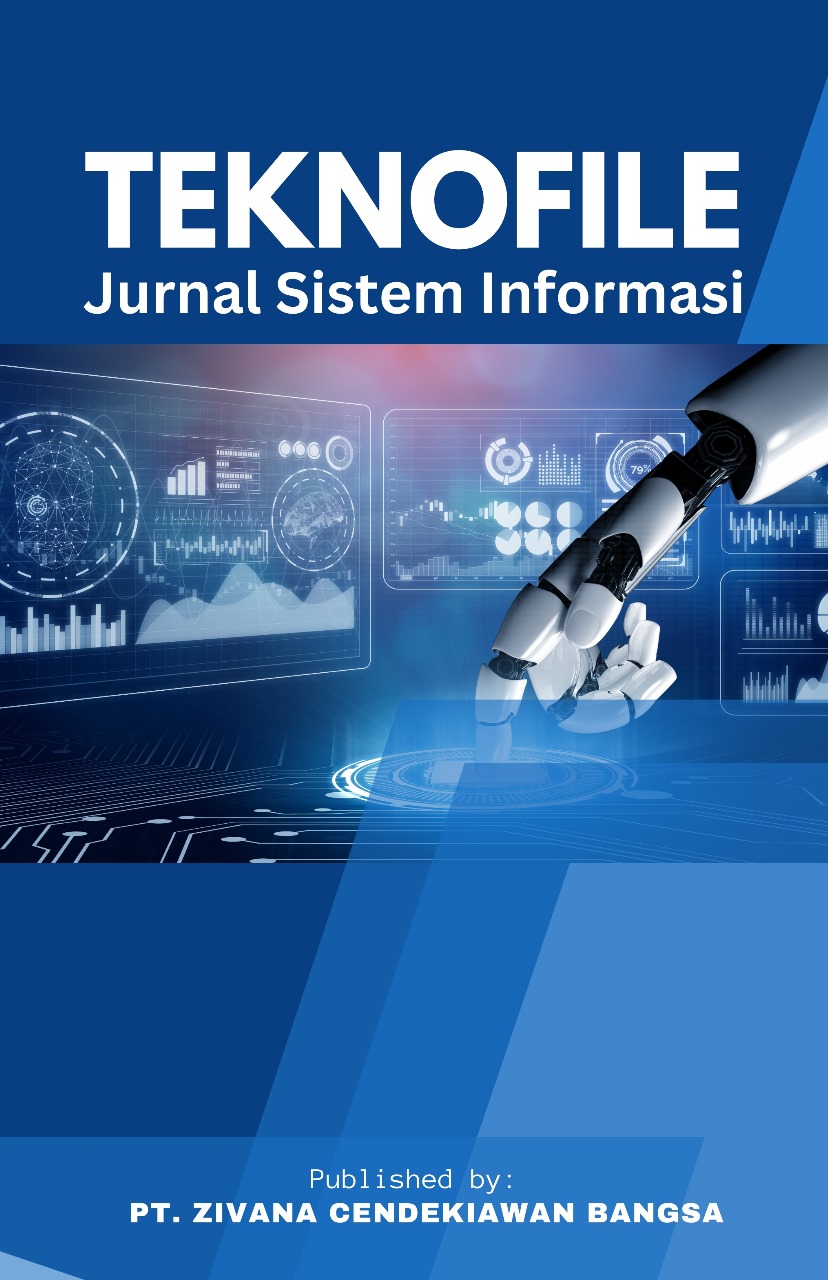DAMPAK CHATGPT PADA KETERAMPILAN BERPIKIR KRITIS: STUDI KASUS MAHASISWA TEKNIK INFORMATIKA STMIK MERCUSUAR BEKASI
Keywords:
artificial intelligence, ChatGPT, critical thinking skills, higher education, informatics studentsAbstract
The advent of generative artificial intelligence has reshaped higher education dynamics, particularly in technology-related study programs. This study aims to analyze the impact of ChatGPT usage on the critical thinking skills of Informatics Engineering students at STMIK Mercusuar Bekasi. A quantitative approach with a descriptive-analytical survey design was employed. Data were collected using a Likert-scale questionnaire distributed online to 57 respondents in July 2025 and analyzed with descriptive statistics and index calculations. The results indicate that students massively adopt ChatGPT to support productivity, accelerate task completion, and broaden their knowledge through new information access. However, its direct impact on enhancing fundamental critical thinking skills is perceived to be relatively limited. This finding suggests the presence of a cognitive offloading phenomenon, where students distinguish between external assistance in the thinking process and the development of independent critical thinking skills. The study highlights the necessity of targeted pedagogical strategies to ensure that ChatGPT utilization not only improves efficiency but also strengthens students’ critical thinking abilities sustainably.
Downloads
References
Ö. Aydın and E. Karaarslan, OpenAI ChatGPT generated literature review: Digital Twin in Healthcare, SSRN Electronic Journal, 2022, doi: 10.2139/ssrn.4308687.
A. M. Battro and S. Dehaene, The Proceedings of the Workshop on Power and Limits of Artificial Intelligence: 30 November-1 December 2016. Città del Vaticano: Pontificia Academia Scientiarum, 2017.
L. Bishop, A computer wrote this paper: What ChatGPT means for education, research, and writing, SSRN Electronic Journal, 2023, doi: 10.2139/ssrn.4338981.
F. D. Davis, R. P. Bagozzi, and P. R. Warshaw, Revisiting the Technology Acceptance Model (TAM) for Generative AI, MIS Quarterly, vol. 49, no. 1, pp. 215–240, 2025.
Y. K. Dwivedi et al., So what if ChatGPT wrote it? Multidisciplinary perspectives on opportunities, challenges and implications of Generative Conversational AI for research, practice and policy, International Journal of Information Management, vol. 71, p. 102642, 2023, doi: 10.1016/j.ijinfomgt.2023.102642.
European Commission for Education, Ethical Guidelines for the Use of Artificial Intelligence in Higher Education. Brussels: EU Publications, 2024.
A. Ferdinand, Metode Penelitian Manajemen: Pedoman Penelitian Untuk Penulisan Skripsi Tesis dan Disertasi Ilmu Manajemen. Semarang: UNDIP Press, 2014.
G. Fulk, Descriptive statistics, an important first step, Journal of Neurologic Physical Therapy, vol. 47, no. 2, p. 63, 2023, doi: 10.1097/npt.0000000000000434.
J. Hartono, Pedagogi Kritis untuk Era Digital: Mengajar Mahasiswa Berinteraksi dengan AI. Jakarta: Gramedia Pustaka Utama, 2025.
INTERSPEECH, Proceedings of Interspeech 2023, 2023, doi: 10.21437/interspeech.2023-1082.
A. Janssen et al., Why do chatbots fail? A critical success factors analysis, in Proc. Int. Conf. Information Systems (ICIS), 2021.
I. Jara and J. M. Ochoa, Usos y efectos de la inteligencia artificial en educación, 2020, doi: 10.18235/0002380.
A. N. Khomarudin and L. Efriyanti, Pengembangan media pembelajaran mobile learning berbasis Android pada mata kuliah kecerdasan buatan, Journal Educative: Journal of Educational Studies, vol. 3, no. 1, pp. 72–82, 2018, doi: 10.30983/educative.v3i1.543.
S. Lee and Y. Chen, Cognitive offloading in the age of generative AI: A meta-analysis, Computers & Education, vol. 185, p. 105123, 2024.
J. Liang et al., Adapting language-audio models as few-shot audio learners, 2023.
B. Lund and W. Ting, Chatting about ChatGPT: How may AI and GPT impact academia and libraries?, SSRN Electronic Journal, 2023, doi: 10.2139/ssrn.4333415.
M. Montenegro-Rueda, J. Fernández-Cerero, J. M. Fernández-Batanero, and E. López-Meneses, Impact of the implementation of ChatGPT in education: A systematic review, Computers, vol. 12, no. 8, p. 153, 2023, doi: 10.3390/computers12080153.
A. B. Nugroho and P. I. Santoso, Literasi kecerdasan buatan di perguruan tinggi teknik: Tantangan dan strategi, Jurnal Pendidikan Teknologi dan Kejuruan, vol. 30, no. 1, pp. 15–28, 2024.
M. Pabubung, Human dignity dalam pemikiran Yohanes Paulus II dan relevansi untuk dunia masa kini, Jurnal Teologi, vol. 10, no. 1, pp. 49–70, 2021, doi: 10.24071/jt.v10i1.2905.
M. R. Pabubung, Epistemologi kecerdasan buatan (AI) dan pentingnya ilmu etika dalam pendidikan interdisipliner, Jurnal Filsafat Indonesia, vol. 4, no. 2, pp. 152–159, 2021, doi: 10.23887/jfi.v4i2.34734.
M. Pradana and H. P. Elisa, Metaverse in education: A systematic literature review, Cogent Social Sciences, vol. 9, no. 2, 2023, doi: 10.1080/23311886.2023.2252656.
M. Ryznar, Giving an online exam, SSRN Electronic Journal, 2020, doi: 10.2139/ssrn.3684958.
R. Saputra, A. W. Widodo, and A. H. Brata, Pengembangan sistem rental kamera online, J-PTIIK, vol. 2, no. 6, pp. 2221–2226, 2017.
A. Setiawan and U. Luthfiyani, Penggunaan ChatGPT untuk pendidikan di era Education 4.0: Usulan inovasi meningkatkan keterampilan menulis, Jurnal Petisi, vol. 4, no. 1, pp. 49–58, 2023.
A. Shodikin, Pengaruh kepemimpinan dan budaya kerja terhadap kinerja tenaga kependidikan dengan motivasi kerja sebagai variabel intervening (Studi pada Universitas Islam Negeri Walisongo Semarang), Jurnal Penelitian Ekonomi dan Bisnis, vol. 3, no. 2, 2018, doi: 10.33633/jpeb.v3i2.2297.
A. Tlili et al., What if the devil is my guardian angel: ChatGPT as a case study of using chatbots in education, Smart Learning Environments, vol. 10, no. 1, 2023, doi: 10.1186/s40561-023-00237-x.
A. Turing, A. Stephan, and S. Walter, Computing Machinery and Intelligence Englisch/Deutsch = Können Maschinen Denken? Ditzingen: Reclam, 2021.
A. Zentner, Applied innovation: Artificial intelligence in higher education, SSRN Electronic Journal, 2022, doi: 10.2139/ssrn.4314180.
X. Zhai, ChatGPT user experience: Implications for education, SSRN Electronic Journal, 2022, doi: 10.2139/ssrn.4312418.
Downloads
Published
Issue
Section
License
Copyright (c) 2025 Rinaldo Rinaldo (Author)

This work is licensed under a Creative Commons Attribution-ShareAlike 4.0 International License.












